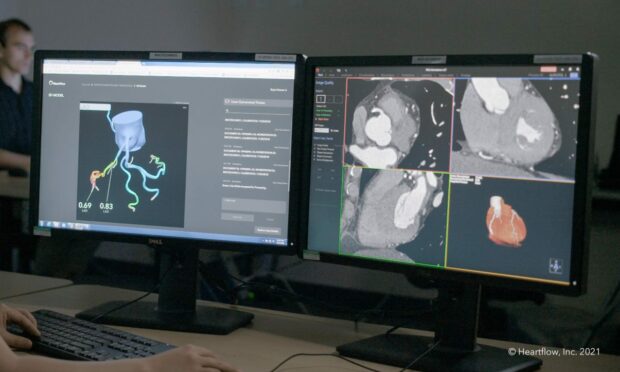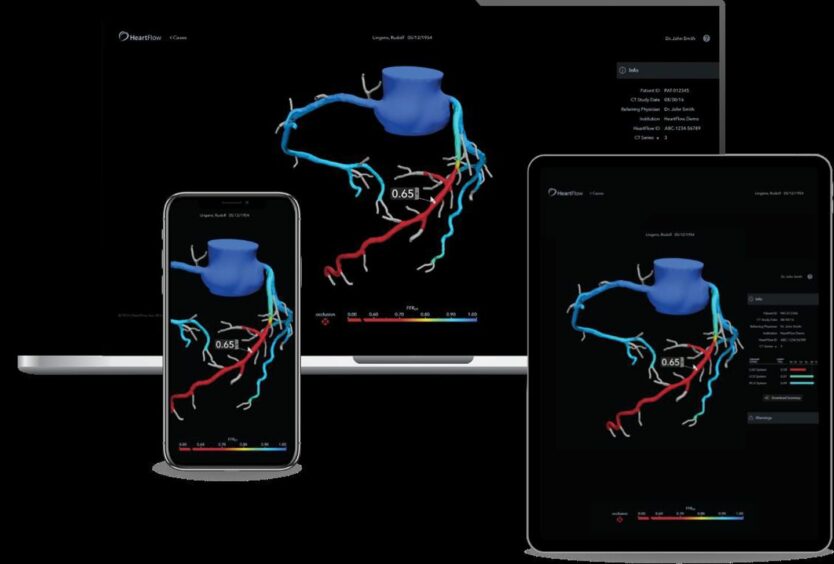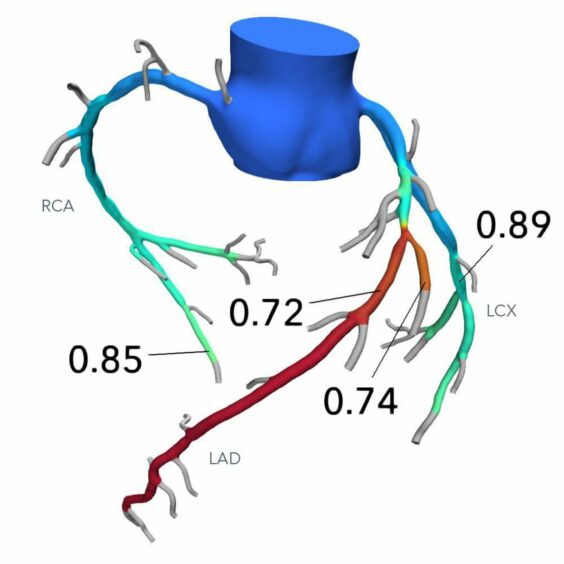NHS Western Isles has become the first health board in Scotland to adopt a “revolutionary” heart test.
HeartFlow is a non-invasive cardiac test which uses artificial intelligence to create a digital colour-coded 3D model of a patient’s coronary arteries.
The technology will help to improve care for patients with Coronary Heart Disease (CHD) which is one of the leading causes of death in the UK.
The model allows medical professionals to see how blockages are impacting blood flow so they can make a diagnosis more efficiently.
Debra Vickers, a cardiology nurse consultant involved in introducing the technology in the Western Isles, said the technology is suitable for patients who have CHD symptoms.
“If a clinician determines that testing is needed, the patient will first receive a CT scan in the Western Isles Hospital in Stornoway, to look for blockages,” she said.
“If the scan shows narrowing in a patient’s coronary arteries, the physician now has the option to order a HeartFlow Analysis.
“No additional hospital visits are needed for this test and there is no additional risk to the patient. With trained specialists and powerful computer algorithms, the HeartFlow Analysis calculates how much each blockage is limiting the patient’s blood flow.
“This information helps physicians evaluate the impact a blockage may be having on blood flow and determine the severity of disease and the optimal course of treatment for each patient; whether that be medication, a stent or bypass surgery.”
Making a significant contibution
Before the introduction of HeartFlow, patients would have had to travel to the mainland for further tests and an invasive procedure.
It is hoped the new technology will improve the waiting lists and allow urgent cases to be referred for treatment more quickly.
Around 60 scans have been sent to HeartFlow since the pilot period began in September 2020, and around 50% of patients have avoided the invasive follow-up of the CT scan.
It has also resulted in a financial saving of £105,000.
NHS Western Isles chief executive, Gordon Jamieson, added: “This exceptional AI-enabled technology has the potential to contribute significantly to an improved patient experience, as NHS Western Isles adopts it as a permanent part of our service.
“We are proud to have introduced this as a first for Scotland, and I would thank the staff involved for their time, effort and commitment to embedding this into our organisation.”



Conversation